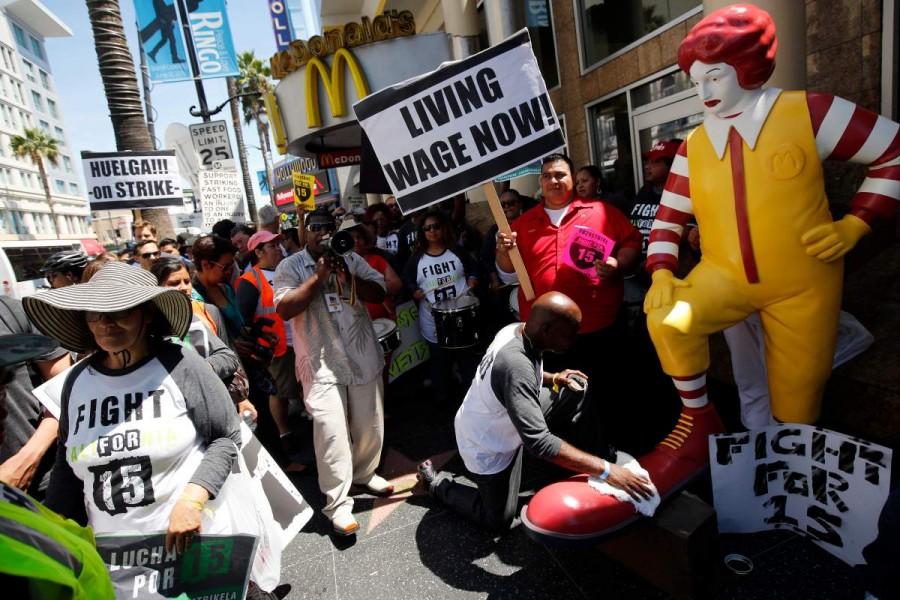Why We Shouldn’t Have a Living Wage
February 23, 2015
Since the dawn of civilization, the exchange of labor for wages has been a crucial component of society. Yet history has constantly shown that this relationship between employers and employees isn’t fair or just all the time. The exploitation of workers by businesses has always existed, from American manufacturing industries of the late seventeenth century to present-day sweatshops in Bangladesh. In response to this continuation of injustice, a movement aimed at ensuring a “living wage” for all workers has gained momentum in the US and has already won victories at the local level. The living wage movement is now turning its attention toward achieving national implementation as its populist message appeals to many of those who have full-time jobs and yet still struggle to stay out of poverty. In principle, the living wage seems to be a moral and effective way of eliminating the working poor, but in real-life, the living wage fails to achieve its goals and may end up harming the very people it is intended to help.
First, if we focus solely on the benefits of a nationally-required living wage, we see that the number of people it would help is shockingly low. An advantage often cited by living wage proponents is that a living wage results in workers receiving higher salaries that will lead to positive economic growth. However, areas that adopted a living wage have seen very few workers actually benefit from living wage laws, thus eliminating the economic growth argument. Studies in both the US and the UK and found that significant proportions of workers affected by living wages did not experience an increase in overall well-being (Auckland Council). But why is it that only a small proportion of those in need end up receiving a living wage?
In order to answer this crucial question, we must consider the costs associated, not only with a living wage, but with wage increases in general. The debate over raising the minimum wage has raged on for decades in both economics and politics. Since studies analyzing the effects of minimum wage increases go both ways, the debate is far from resolved. However, the economic effects of a living wage are fairly conclusive; across the board, studies show that living wage ordinances cause job loss, especially for low-wage workers. The reason that studies for minimum wage increases are inconclusive while those for living wages are consistent is that instituting a living wage would be the equivalent of doubling the minimum wage, a significant change that will undoubtedly have some effects on jobs. A minimum wage increase to $10.10 that President Obama is proposing is much smaller than a living wage, which is why the impact on employment is a moot point. But the decrease in low-wage employment resulting from a living wage would eliminate jobs that would have originally been covered under the wage law, thus accounting for the smaller-than-expected benefit on the working poor. And this increase in unemployment easily outweighs the benefit of only a few workers receiving a higher wage.
So what should we do to help the working poor? First, we should look at the reasons why those in need are in poverty. Many would like to point the finger at big corporations who are denying them decent salaries, but if we look to the root causes of such poverty, it is clear that corporations are not the cause, though they certainly might have exacerbated the situation; rather, society as a whole is to blame for creating the conditions. Thus, we need to address this as a social challenge, and as such, the government should expand already existing programs such as income tax credits and welfare programs to help the working poor and provide them with opportunities for development. Dumping the burden on businesses, which is what the living wage movement is trying to do, only harms the working poor by causing layoffs and unemployment, which is why we should work as a society to approach this important issue and use the government as a mediator in ensuring the basic needs of the least well off.


